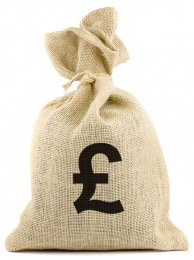In this section we’ll look at all things financial relating to your self build, from producing a full set of building costs to insurance, warranties, mortgages and tax.

The Building Costs
In our introductory section, we discussed producing a ball-park figure for build costs and how this could be used for the initial planning of your build.
Having used it to help with your decision to proceed, it is a good idea to produce an itemised set of costs which can be used to assess designimplications and if you have decided to project manage, you can use them for cost control as your build progresses. It illustrates how costs will break down within your overall budget.
If you intend to use an architect, package company or have employed a quantity surveyor to oversee costs then you might not need to bother.
Having put together a comprehensive set of costs, you should track them as your project progresses. By keeping accounts, you can compare actual costs with the budget and keep your project on track financially.
Financing Your Build
If, like most of us, you need finance for your build, there are a number of specific mortgages on the market. The main difference from conventional mortgages is that they release money at stages as and when you need to make payments. Click for more information.
If you are using a mortgage then the borrowing costs should be included in your overall building costs.
Limiting Financial Risk
An important cost item and something you definitely need in place when building your own home is adequate insurance cover. It is one of the main tools available to manage your risk and its cost is far outweighed by its potential value.
Self build has a unique set of insurance needs and as with mortgages, there are a number of providers in the market who have tailored products to suit. For more information visit our page on insurance.
Another essential insurance requirement is structural defects liability insurance or a ‘building warranty’. Following completion of your home the policy provides ten years of cover against certain structural defects and is a key requirement for mortgage lenders.
Tax
The first tax item to address is Stamp Duty Land Tax. If your plot is above the threshold it will apply to the purchase price.
Keeping an accurate set of accounts and receipts as your build progresses makes life a lot easier when it comes to reclaiming self build VAT.
Yes that’s right! – New build houses are zero rated for VAT so you can reclaim any you’ve paid for materials.
A great little windfall when your house is finished and your bank account is empty!
Capital gains tax is another issue that come up with building your own home and as long as you move into the property, live in it and it is your primary residence you aren’t liable.
After all that talk of building costs, isn’t it nice to end with some good tax news for a change!
International Payments
Many self builders find materials, products or technologies overseas which they either can’t get in the UK or can source cheaper elsewhere. An added element of risk comes in to play when buying overseas, with the chance of currency fluctuations as well as potential transaction costs.
Return to Home Page from Building Costs
